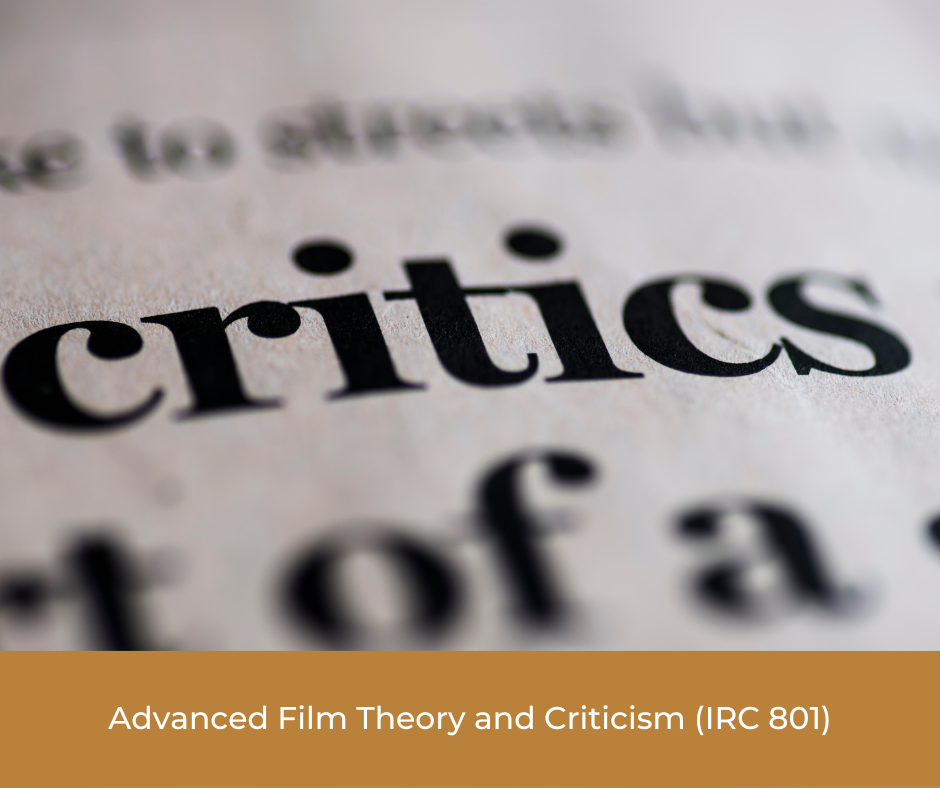Advanced Film Theory and Criticism
Course Description: This course delves into advanced theories and critical approaches to cinema. Students will explore various film movements, genres, and styles, and develop the skills to critically analyze and evaluate films. The course aims to foster a deep understanding of cinema as an art form, a medium for storytelling, and a reflection of societal values.
Outline of Major Content Areas:
- Postmodern Cinema and Critical Theory:
- Postmodernism in film
- Deconstruction of narratives
- Intertextuality and pastiche
- Critical approaches to postmodern cinema
- Genre Studies:
- Film noir: Characteristics and analysis
- New Wave movements: Exploration and influences
- Neorealism: Social context and storytelling
- Case studies of genre films
- Auteur Theory and Directorial Styles:
- Origins and key proponents of auteur theory
- Identifying auteur directors
- Analyzing directorial styles and themes
- Debates surrounding auteur theory
- Cognitive Film Theory and Spectatorship:
- Understanding cognitive psychology in film
- Viewer perception and cognitive processes
- Emotion, memory, and immersion in cinema
- Film analysis from a cognitive perspective
- Ethics and Social Issues in Cinema:
- Ethics of representation in film
- Depiction of social issues in cinema
- Case studies of films addressing ethical and social concerns
- Critical examination of controversies in film
- Research Projects:
- Developing research questions in film theory
- Literature review and academic research skills
- Conducting in-depth film analysis
- Crafting critical essays and presentations
Course Learning Outcomes:
Upon successful completion of this course, students will be able to:
- Analyze and interpret films using advanced theories and critical perspectives.
- Apply postmodernism and critical theory to deconstruct narratives and explore intertextuality in cinema.
- Identify and assess the characteristics and significance of various film genres, including film noir, New Wave, and neorealism.
- Evaluate auteur theory and directorial styles, discussing their impact on filmmaking and storytelling.
- Analyze the cognitive aspects of film and the spectator’s role in the cinematic experience.
- Engage in ethical discussions related to film representation and societal issues, considering cultural, political, and moral contexts.
- Develop and conduct independent research projects, including in-depth film analysis and critical essays.
Methods for Assessing Student Learning:
Assessment in this course will include a combination of the following methods:
- Film Analysis Projects: Students will analyze selected films, applying advanced theories and critical perspectives. These analyses will be presented through written essays and class discussions.
- Critical Essays: Students will be required to write critical essays on various topics covered in the course, demonstrating their ability to apply theoretical concepts to film analysis.
- Class Presentations: Students will present their research findings, film analyses, and critical essays to the class, encouraging discussions and critical feedback.
- Examinations: Periodic assessments may include exams that evaluate the students’ comprehension of course materials, theories, and concepts.
- Research Projects: The research component will assess students’ ability to conduct independent research in the field of film theory and criticism. This will involve selecting a research topic, conducting literature reviews, and presenting findings in both written and oral formats.
- Class Participation: Active engagement in class discussions, group activities, and peer reviews will be considered when assessing students’ understanding of the material and their ability to critically engage with their peers.
Assessment will be designed to encourage critical thinking, foster in-depth understanding of advanced film theories, and develop the skills necessary for effective analysis and criticism in the field of cinema.
